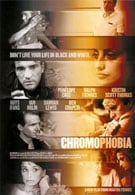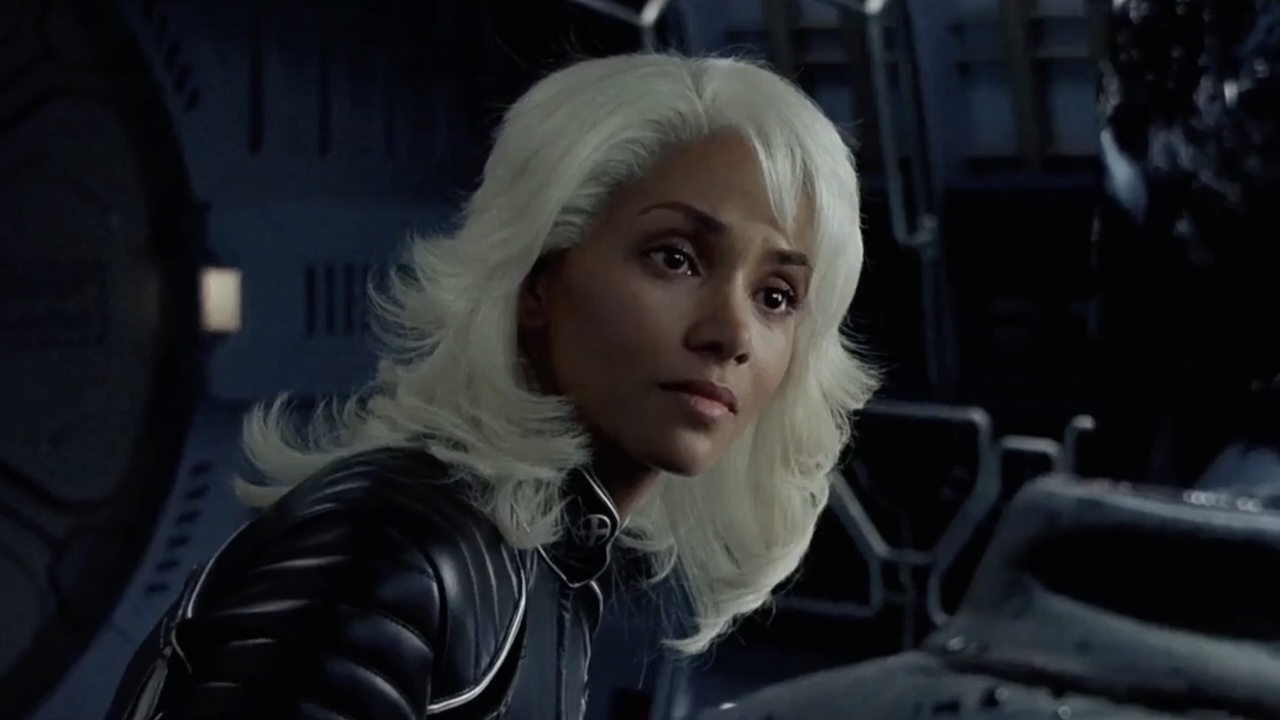With the exception of Jennifer Aniston’s film career, is there anything more painful to watch than a high-minded, “serious” film that just doesn’t quite measure up to its lofty goals? Martha Fiennes’ latest offering, Chromophobia, which closed this year’s Cannes Film Festival, is one such example of well-intentioned social commentary that aims for the profound but arrives at the pretentious. Even a stellar ensemble of Britain’s finest actors can’t rise above a contrived screenplay that’s eerily reminiscent of 2005’s vastly overrated Crash.
Fiennes, Ralph’s sister, showed considerable promise with her 1999 feature debut, Onegin, which starred Ralph in the title role. This time around, little sis rewards her brother with a peculiarly underwritten part as Stephen Tulloch, a museum curator with a weakness for adolescent boys. Stephen is godfather to the son of Marcus and Iona Aylesburg, played by Damian Lewis and Kristin Scott Thomas, whose crumbling marriage serves as the dysfunctional centerpiece of the story. The convoluted web of relationships also includes Ian Holm as Marcus’ father, a retired judge, Ben Chaplin as an old pal from Marcus’ university days who’s now a struggling journalist, and Penelope Cruz and Rhys Ifans as two hapless souls whose story seems wholly unconnected to the rest of the proceedings.
The film’s early scenes, by far its best, display a sharp wit and satirical edge that are disappointingly dulled in its latter half. Iona’s session with her therapist is disrupted by her deeply troubled son, who decides it’s the perfect time to smash the bloody carcass of a bird against the glass wall of the family’s immaculately sterile, art-deco home. Marcus has just been made partner at a prestigious London law firm but would rather download music all day and play air drums in his office, longing for the old days with his band. The elder Mrs. Aylesburg is nearly decapitated by a piece of crumbling façade while gardening at their country estate. These oddly unsettling sequences achieve the desired effect as Fiennes, like Paul Haggis did with race relations in Crash, seeks to confront head-on the issue of class in English society.
Unfortunately, she abandons this subtle, quirky approach as the film plods along, opting instead for phony plot machinations and cheap melodrama that even “Lifetime” would be ashamed to air. As his marriage unravels, Marcus is faced with a moral dilemma at the office involving an unsavory politician client. Chaplin’s character, recently reunited with his college buddy, is forced to choose between landing the story of the year and selling out his old friend. Stephen’s taste for young boys lands him in a nasty predicament. And, in the film’s most egregiously mawkish subplot, we finally learn how Cruz’s terminally ill hooker and Ifans’ social worker fit in to this very messy equation. (Here’s a hint: her favorite customer who fathered her child just happens to be one of the story’s principals).
In the end, everything is wrapped up all neatly in one big shiny message about the corrupting influence of power and wealth and how important it is to be tolerant and kind to one another and get back to the basics of life, or something to that effect. We know this because the intrusive soundtrack blares one inspirational song after another, like Bowie’s “We Could Be Heroes” and Beethoven’s “Ode to Joy”, trying in vain to achieve moments of emotional grandeur in the film’s final listless scenes. It all rings false because in the end, we could care less about these people and what they represent.
Chromophobia remains an interesting failure primarily because of some solid performances from its cast, who soldier gamely on despite the script’s shortcomings. Poor Rhys Ifans is given little to do but mope about as Cruz’s selfless benefactor. Fiennes underplays his part to such an extent that we barely notice when he disappears for almost the entire second half of the picture. But Ben Chaplin shines, exuding a nervous air of desperation as the ambitious journalist barely hiding his resentment for his friend’s success. Damian Lewis, so good in Band of Brothers and the haunting Keane, hits all the right notes as a relatively decent bloke in way over his head. And Kristin Scott Thomas is superb as Iona, whose “ice queen” persona belies a warm heart balanced on a bundle of neuroses ready to implode at any moment.
So what have we learned from all this? Discerning filmgoers, and I will boldly place myself in that category, typically don’t like having ham-handed messages of peace, love, and understanding pounded down our throats, even by an attractive cast with cool British accents. We’ve seen it all before. In fact, we even voted it Best Picture last year. Thank you, Hollywood, for keeping us on the straight and narrow.
Your Daily Blend of Entertainment News

